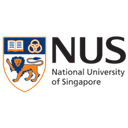Master the fundamentals of semiconductors and their role in electronics. Learn about conductors, insulators, and semiconductor properties with minimal math.
Master the fundamentals of semiconductors and their role in electronics. Learn about conductors, insulators, and semiconductor properties with minimal math.
This beginner-friendly course explores semiconductor physics without heavy mathematics, focusing on intuitive understanding. Students learn why materials conduct electricity differently, how semiconductors work, and their importance in modern electronics. The course covers fundamental concepts from static electricity to solar cells, making complex physics accessible through practical examples and clear explanations. Perfect for those interested in electronics and materials science, it provides essential knowledge for understanding semiconductor technology and its applications.
4.7
(15 ratings)
5,790 already enrolled
Instructors:
English
English
What you'll learn
Understand the fundamental principles of semiconductor physics and their applications
Explain the behavior of electrons in different materials and how it affects conductivity
Comprehend the concepts of bandgap, doping, and their effects on semiconductor properties
Analyze how solar cells work and why silicon is crucial in modern electronics
Skills you'll gain
This course includes:
PreRecorded video
Graded assignments, exams
Access on Mobile, Tablet, Desktop
Limited Access access
Shareable certificate
Closed caption
Get a Completion Certificate
Share your certificate with prospective employers and your professional network on LinkedIn.
Created by
Provided by

Top companies offer this course to their employees
Top companies provide this course to enhance their employees' skills, ensuring they excel in handling complex projects and drive organizational success.





There are 4 modules in this course
This comprehensive course introduces semiconductor physics with a focus on practical understanding rather than complex mathematics. Starting with basic concepts of conductivity and insulation, it progresses through static electricity, electron behavior, and crystal structures. Students learn about semiconductor properties, bandgaps, doping, and applications like solar cells. The course emphasizes intuitive understanding of why materials behave as they do, particularly focusing on silicon's importance in modern electronics. Special attention is given to real-world applications and fundamental concepts that form the basis of semiconductor technology.
Introduction
Module 1
Electrons on the Move
Module 2
Electricity and Light
Module 3
Crystals and Semiconductors
Module 4
Fee Structure
Instructor
Pioneering Optoelectronics Researcher and Educator at National University of Singapore
Aaron Danner is an Associate Professor in the Department of Electrical and Computer Engineering at the National University of Singapore, where he has been teaching since 2006. His expertise lies in semiconductor device fabrication and characterization, with a focus on optoelectronics devices. Danner leads the Optical Device Research Group at NUS, exploring cutting-edge areas in optics and photonics, including materials and structures that enhance light-matter interaction. His research targets applications in optical communications, arbitrary optical wavefront generation and detection, quantum information processing, and holography. Danner's work encompasses industrially-relevant research on vertical cavity lasers, solar cells, and nonlinear optical materials for long-distance optical fiber communications and on-chip quantum optics. He is particularly interested in overcoming fabrication challenges with materials like lithium niobate and barium titanate for photonics-lab-on-chip and quantum-optics-on-chip applications. Danner's group recently secured a $7 million Competitive Research Project from Singapore's National Research Foundation for work on optical Ising machines. Prior to joining NUS, he worked in the semiconductor industry at Agilent's wafer fab division (now part of Broadcom). Danner holds a Ph.D. in Electrical Engineering from the University of Illinois, Urbana-Champaign and is committed to making high-quality educational materials accessible to all, regardless of resources and background.
Testimonials
Testimonials and success stories are a testament to the quality of this program and its impact on your career and learning journey. Be the first to help others make an informed decision by sharing your review of the course.
Frequently asked questions
Below are some of the most commonly asked questions about this course. We aim to provide clear and concise answers to help you better understand the course content, structure, and any other relevant information. If you have any additional questions or if your question is not listed here, please don't hesitate to reach out to our support team for further assistance.



